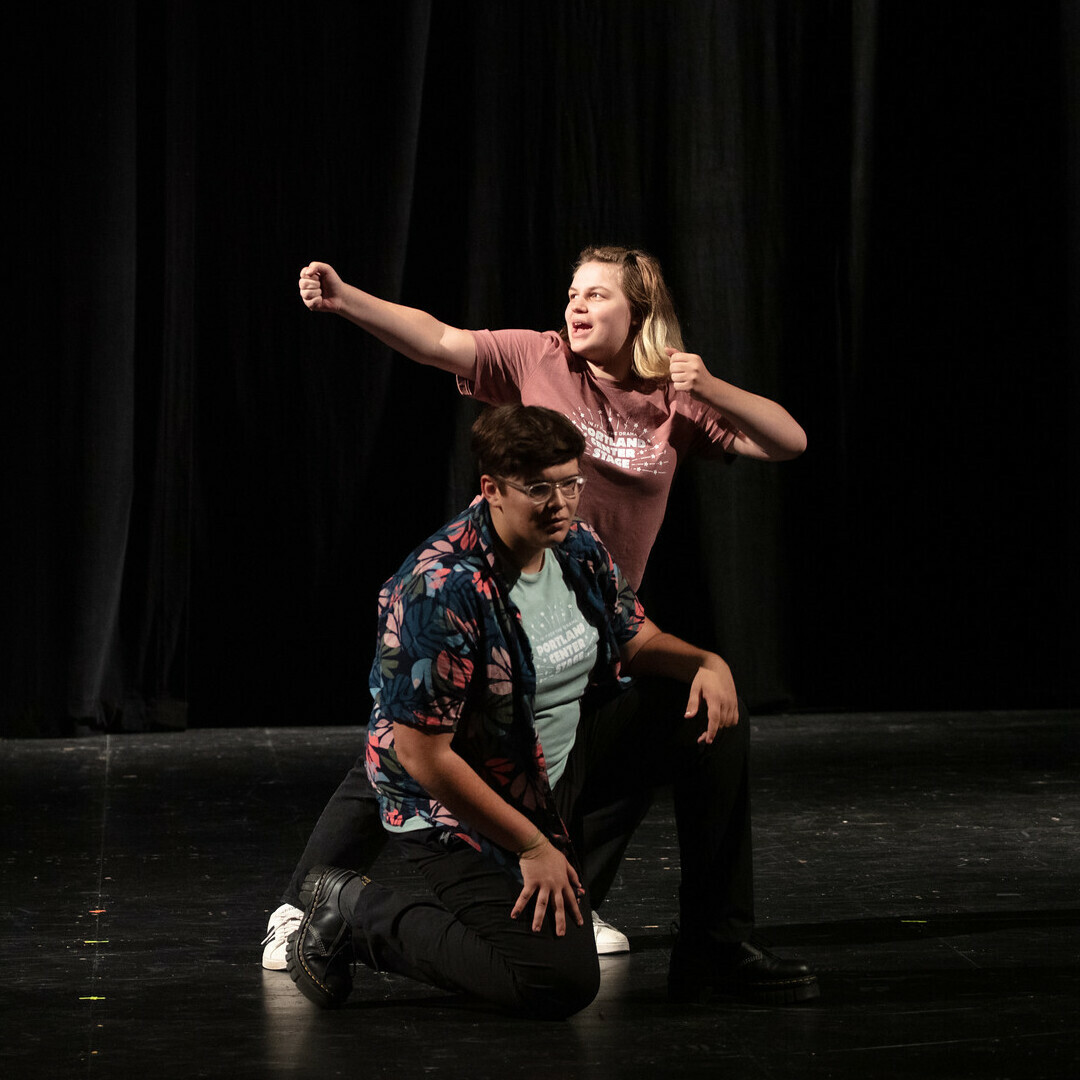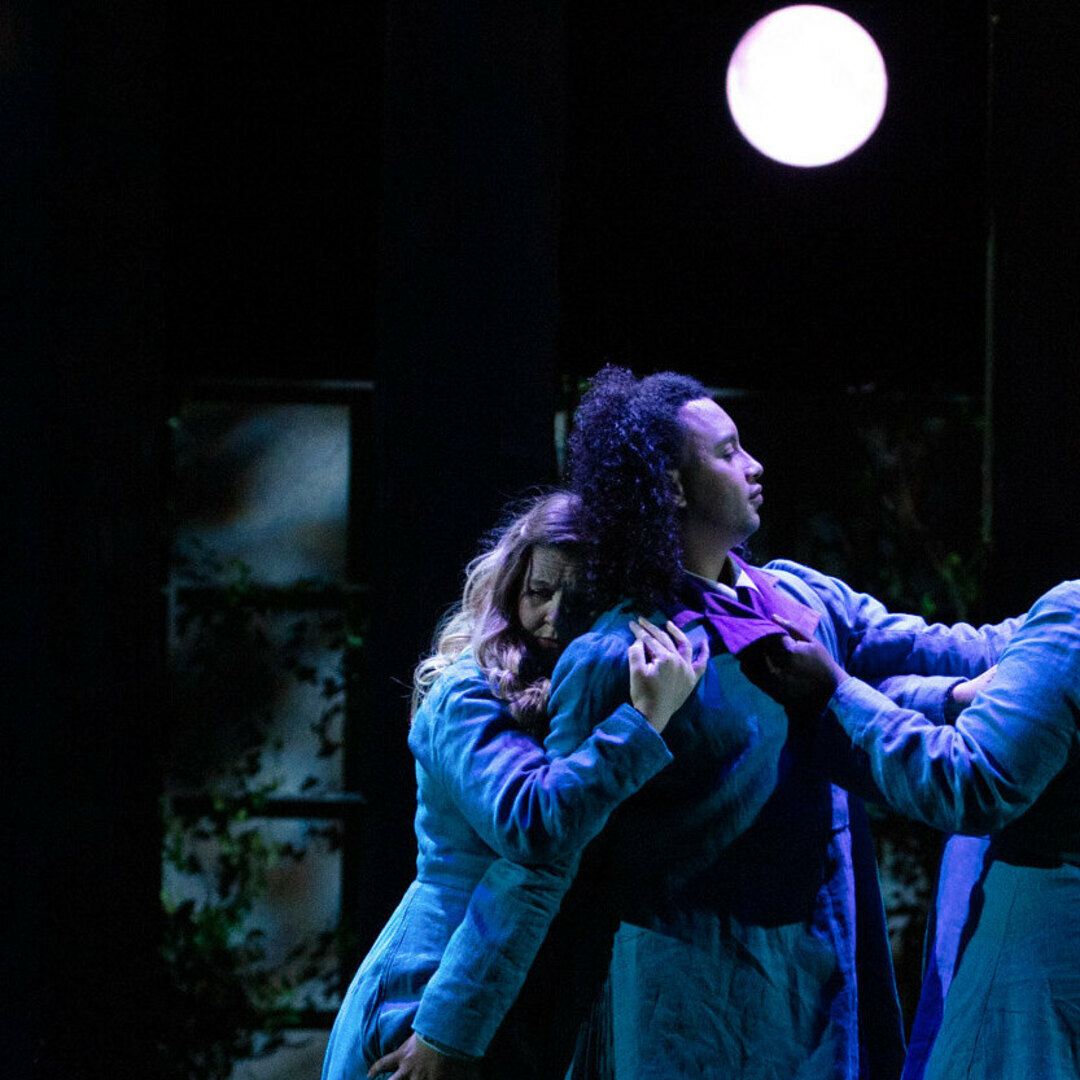An Exploration of Fun Home
LOVE AND THE INVERTS
Staging Memory in Fun Home
By Benjamin Fainstein, Literary Manager
American musicals based on graphic novels and comic books are a rare breed. Even rarer, though, are musicals adapted from a cartoon-paneled memoir created by a butch lesbian chronicling her coming-of-age, coming out, and coming to terms with the suicide of her exacting, closeted father. In fact, that kind of musical is so rare that Fun Home, adapted from Alison Bechdel’s graphic memoir by the same name, is the only one of its kind, which begs the question: how did a book like that get to Broadway?
Decades before she wrote Fun Home, Bechdel had garnered a reputation as the intellectually provocative, socially subversive cartoonist behind the long-running serial Dykes to Watch Out For. She is perhaps most widely known, however, as the namesake of “The Bechdel Test,” a handy measuring tool employed to get a baseline reading of how women are characterized in a work of fiction. The test consists of three questions: Are there at least two women in this piece? Do they ever speak directly to each other? If so, is it ever about something other than a man? If the answer to all three is yes, then the work passes the test for having at least some dimensionality in its representation of women, though passing doesn’t necessarily mean the work deserves a gold star for feminist achievement.
Given Bechdel’s career trajectory, it is clear that, as stated on her website, she “is preoccupied with the overlap of the political and the personal spheres, the relationship of the self to the world outside.” Fun Home wholly embodies this preoccupation. The book was published in 2006 to widespread acclaim. Seven years later, playwright Lisa Kron and composer Jeanine Tesori’s adaptation premiered at The Public Theater in New York; the run was extended multiple times, and in April 2015, the musical transferred to Broadway.
In her foreword to the published script, Kron discusses the most challenging aspects of transforming Fun Home from memoir to musical. She and Tesori had to determine how they would structure their storytelling, given the necessary shift in perspective away from the private relationship the introspective book forges with individual readers to the collective relationship that exists between a play and its audience. Kron points out that, unlike a novel, “theater can’t show you a person’s inner life; it can only show you behavior. Activities like thinking, feeling, drawing, or remembering can only be shown on a stage if they are externalized.”

Further muddying those aesthetic waters was the fact that they had to contend with the inextricable presence of Alison Bechdel herself. She is not only the narrator of her book but also its most prominent character, or really set of characters, as adult Alison sifts through multiple versions of herself while remembering various eras of her life. Moreover, the book’s narrative arc is not linear. Timelines are jumbled. Bechdel unfurls her story in organized fractures, a kaleidoscope of calculated chaos that gives readers the sense of synapses firing in the act of remembering. As she accesses one memory, unexpected details of another come flooding forth. Her moments of emotional revelation constantly butt up against her more cerebral attempts to contextualize her family history within the greater sociopolitical framework of her generation.
Kron was wary, however, of simply transplanting Bechdel into the role of theatrical narrator. Recalling Thornton Wilder’s observation that “on the stage it is always now,” she and Tesori created Small Alison and Medium Alison, who experience their life as it happens, free from the gravity of middle-aged Alison’s memory. “Fun Home, the graphic novel, looks back,” writes Kron, “in Fun Home, the musical, we watch characters move forward in time.” Adult Alison does not merely observe the time of her life collapsed in on itself and sliced into segments: she initiates its dissection. Rather than narrating, she is a woman “doggedly pursuing a goal. She is actively combing through her past ... and by following that path, she is changed.”
Artists have long walked that path and contemplated the relationship between theater and memory. Innovative director Anne Bogart claimed that “if the theatre were a verb, it would be ‘to remember.’” Tennessee Williams coined the term “memory play” for The Glass Menagerie as a way of categorizing his elusive and ethereal material. But he also issued a warning to his audience that “memory takes a lot of poetic license ... for memory is seated predominantly in the heart.”
That claim rings true for Fun Home, which likewise resists easy classification. The musical has touched the hearts of thousands of people and demonstrated how human memory can function like a hall of mirrors whose distortions may open our eyes to profound self-awareness. In 2015, Fun Home’s generosity of spirit and exquisite construction resulted in Kron and Tesori becoming the first all-women writing team to receive the Tony Awards for Best Book, Best Original Score and Best Musical. Even Bechdel approvingly said of their adaptation, “they understood the emotional backbone better than I did … I just let go.”
Backstage Peek into the Fun Home Rehearsal Process:
A 360° peek at our Fun Home set getting built!


Portland Center Stage is committed to identifying & interrupting instances of racism & all forms of oppression, through the principles of inclusion, diversity, equity, & accessibility (IDEA).























